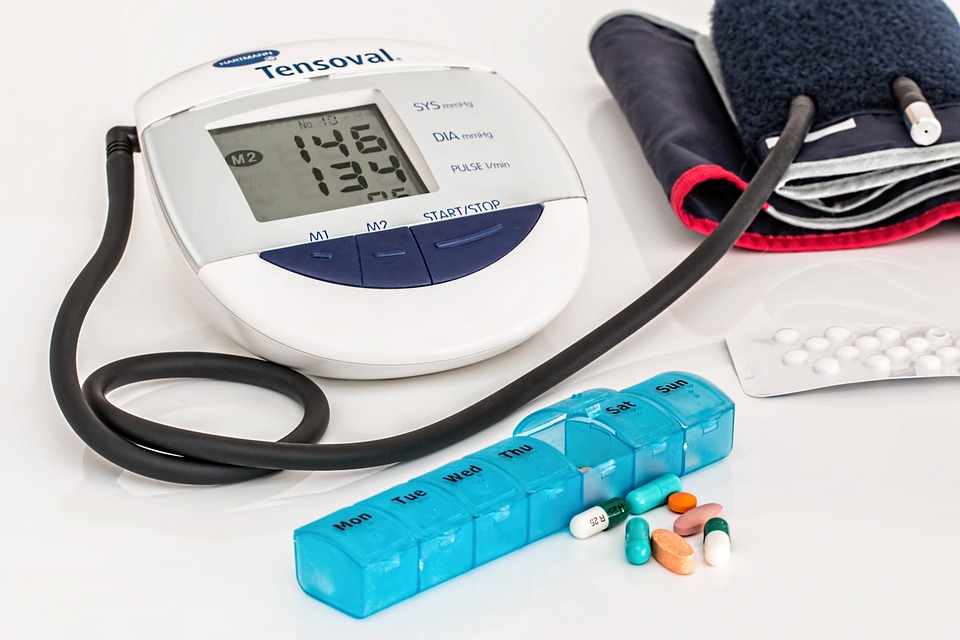Table of Contents
Hypertension or high blood pressure is the abnormal rising of the pressure within the arteries. This is a persistent condition when the blood is delivered in the entire body. This is what is considered high blood pressure. You can calculate high blood pressure using two numbers. The upper systolic pressure is the pumping action of the blood by your heart. Normally, it is 120 mmHg or even lower, The rest between the heart beats is called the lower diastolic pressure, normally, this is 80 mmHg or even lower. The following is what is considered high blood pressure stages:
- STAGE 1: Pre – hypertension is 120/80 to 139/89
- STAGE 2 or Mild Hypertension is 140/90 to 159/99
- STAGE 3 or Moderate Hypertension is 160/100 to 179/109
- STAGE 4 or Severe Hypertension is 180/110 or higher
Pre – Hypertension Stage
If you believe that your blood pressure is in the pre-hypertension stage, you would likely to end up to have a high blood pressure, unless you take steps to prevent it. You need to treat your high blood pressure because it could possible lead to heart attacks, kidney failure, heart failure, blindness, as well as stroke.
What is considered high blood pressure is one of the most essential questions you need to answer, because the exact cause of this illness is not really exact. There are a lot of things that are linked to having high blood pressure, these are:
- A long family background of high blood pressure
- Age: 35 and up is the critical age of men while 45 and up is the critical age for women
- Gender: women are less likely to have high blood pressure than men
- Smoking:You have an increased chance of high blood pressure if you smoke cigarettes
- Race: 25% of Caucasians have high blood pressure while 33% of African-Americans have this illness
The Silent Killer
Sadly, we can’t really know what is the cause of high blood pressure in most cases. What is considered high blood pressure is also known as hypertension.
Silent killer is what is considered high blood pressure vecause . There are identifiable causes for the secondary hypertension. If there is an narrowing of arteries of the renal arteries of the kidney is one of he most important causes of the secondary hypertension. 5% of all hypertension could reduce the kidney size and is typically caused by renal artery stenosis. Many people do not really know that they have this illness until they have problems connected to their kidney, heart, or even the brain.
Keep Your Blood Pressure Under Control
This illness targets Americans aged 60 or old. At most, would affect 50 million people. One out of three people have high blood pressure. Half of these known patients use medications in order to lower their blood pressure, but the other half only have their blood pressure under control. Changing your lifestyle could potentially lower the risk of you having what is considered high blood pressure, this includes:
- Maintenance of a healthy weight
- Increase of physical activity
- Elimination of tobacco use
- No to three ounces of alcohol consumption per day for men and one up to one and a half ounce for women
- Being relaxed in a workday
- Developing healthy eating habits, which include selecting a variety of foods, partially whole grains, fruits and green vegetables, and limiting the intake of salt and saturated fats
You can also work with your doctor to achieve good blood pressure control by:
- Knowing your blood pressure.
- Monitor your blood pressure regularly, and keep a written record to share with your doctor.
- Take medications as instructed.
- If blood pressure readings remain high, ask your doctor if tests to detect secondary hypertension should be conducted.
Some Facts about What is Considered High Blood Pressure
High blood pressure is linked to many other medical issues. What is considered high blood pressure could lead to a more serious underlying condition. If you believe you have high blood pressure, your doctor will check your kidney and urine function. S/he might even do an electrocardiogram to fully check your heart and would look for changes in your lung. If your blood vessels are stressed, it would make you more prone to peripheral vascular disease, heart disease, stroke, heart attack, aneurysm, and even kidney diseases. Kidney disease, diabetes, sleep apnoea, and high cholesterol are some things that could develop your high blood pressure.
Pregnant Women with High Blood
Pregnancy, for women, could highly contribute to your high blood pressure. This would lead to preeclampsia. After six weeks, your postpartum blood pressure could go back to normal levels. But, some women who experienced having high blood pressure more than once in their multiple pregnancies, they might be more likely to develop high blood pressure as well as other cardiovascular diseases when they age. These medical issues could also spike their high blood pressure.
If you lower your systolic blood pressure, it would cut out many health risks. Several studies found out that lowering the systolic blood pressure to below the recommended level would also lower the cardiovascular events and even deaths to people aged 50 with high blood pressure.
When people achieved the 120mmHg systolic blood pressure instead of the 140 mmHg or even the 150mmHgh for people over age 60, strokes, heart attack, and even heart attacks were reduced by almost a 33%, and the death would even by 1/4.
It is very dangerous, in an instant, to have an older person on medication to have these unsafe side effects such as water pills or diuretics. This would cause dehydration and even dizziness in some older adults. There are also other issues that are connected with taking in multiple medications, such as compliance and even cost.
Talk to your doctor about the target blood pressure and how to achieve it, especially if you feel you have high blood pressure.
White Coat Hypertension
White coat hypertension is another fact of high blood pressure. What is considered high blood pressure is seriously connected with white coat hypertension. The latter is when there is an elevation of blood pressure in the doctor’s office but not in other places. With this, the person needs to monitor their pressure at home or might even wear an ambulatory blood pressure monitor that takes your pressure at least 30 minutes for the whole day.
Simple nervousness and white coat hypertension are considered the same. However, in recent researches, it was proved as otherwise. What is considered sustained high blood pressure has a study published called Hypertension. In this journal, people having white coat hypertension would have a greater risk of having high blood pressure. One good explanation for this event is that people experiencing white coat hypertension would have a hard time managing anxiety and even stress.






 I love to write medical education books. My books are written for everyone in an easy to read and understandable style.
I love to write medical education books. My books are written for everyone in an easy to read and understandable style.